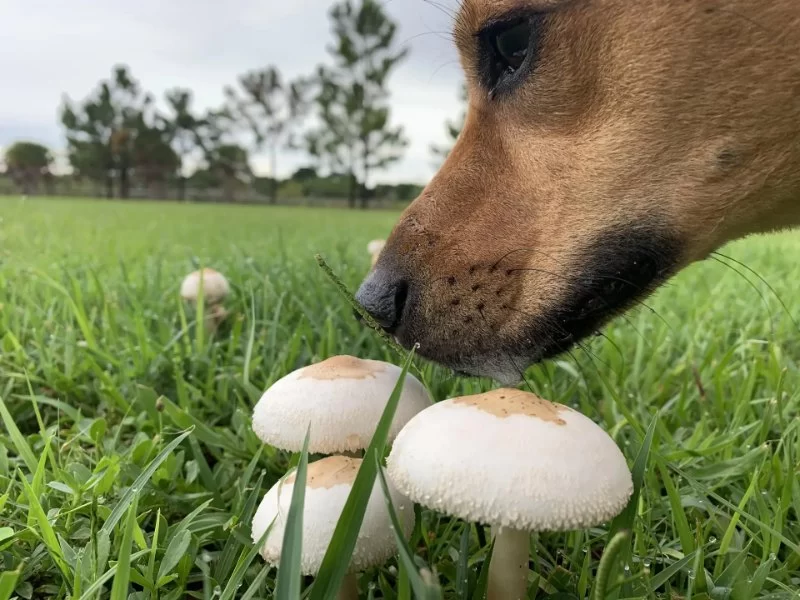Can Dogs Eat Cooked Mushrooms? Everything You Need to Know
If you're a pet owner who enjoys cooking with mushrooms, you might be wondering: can dogs eat cooked mushrooms? While many mushrooms are safe for humans, they can pose health risks to dogs if not prepared correctly. In this article, we will explore whether it's safe for dogs to eat mushrooms cooked in various dishes and provide tips on how to handle mushrooms safely for your pet's health.
- Types of Mushrooms Safe for Dogs
- Health Benefits of Mushrooms for Dogs
- Risks of Feeding Dogs Mushrooms
- How to Prepare Mushrooms for Dogs
- When to Avoid Giving Mushrooms to Dogs
Types of Mushrooms Safe for Dogs
Not all mushrooms are created equal, and some are downright dangerous for dogs. While certain mushrooms are edible for humans, the same might not be true for dogs. However, some types of mushrooms can be a healthy addition to your dog's diet if prepared properly. Here’s what you should know:
1. Store-Bought Mushrooms
Common store-bought mushrooms like button mushrooms, cremini mushrooms, and portobellos are generally safe for dogs when cooked. These mushrooms are non-toxic and can provide a few nutritional benefits when served in moderation. However, it’s essential to cook them well to break down any potentially harmful compounds.
2. Shiitake Mushrooms
Shiitake mushrooms are another variety of edible mushrooms that can be safe for dogs in moderation. These mushrooms contain antioxidants and have potential anti-inflammatory properties. Always ensure they are cooked thoroughly before serving them to your dog.
Health Benefits of Mushrooms for Dogs
Mushrooms, especially when cooked, can offer some health benefits for dogs. However, these should always be provided as an occasional treat rather than a staple part of your dog’s diet. Here’s how mushrooms can benefit your dog:
1. Rich in Vitamins and Minerals
Cooked mushrooms are a good source of vitamins and minerals, such as B-vitamins (including riboflavin, niacin, and pantothenic acid), potassium, and selenium. These nutrients are important for your dog’s overall health, supporting their immune system, digestion, and heart function.
2. Antioxidant Properties
Mushrooms contain antioxidants that help protect your dog’s cells from oxidative damage. This can help support their immune system and reduce the risk of certain diseases, including some cancers and heart conditions.
3. Digestive Health
Some mushrooms contain prebiotics, which can support your dog’s gut health by promoting the growth of beneficial bacteria in the digestive tract. A healthy gut is essential for proper digestion and overall well-being.
Risks of Feeding Dogs Mushrooms
While certain mushrooms can provide nutritional benefits for dogs, there are also risks involved, especially if you’re not careful about what type of mushrooms you're feeding your pet. Here are the primary risks:
1. Toxic Mushrooms
Wild mushrooms, particularly those found in forests or your backyard, can be highly toxic to dogs. Some mushrooms contain deadly toxins that can cause severe illness or even death. Symptoms of mushroom poisoning in dogs include vomiting, diarrhea, lethargy, and in severe cases, liver failure.
2. Upset Stomach
Even safe mushrooms can cause digestive upset in some dogs, especially if they’re not used to them. Feeding your dog too many mushrooms, or serving them raw or undercooked, can lead to nausea, vomiting, and diarrhea.
3. Allergic Reactions
Just like humans, some dogs may be allergic to mushrooms. If you notice your dog showing signs of an allergic reaction, such as itching, hives, or swelling, it’s best to stop feeding them mushrooms and consult with your veterinarian.
How to Prepare Mushrooms for Dogs
If you decide to give your dog mushrooms, it's important to prepare them properly to ensure they are safe and healthy for your pet. Here’s how to do it:
1. Cook Thoroughly
Raw mushrooms can be difficult for dogs to digest and may contain harmful compounds that are broken down during cooking. Always cook mushrooms thoroughly before offering them to your dog. Grilling, sautéing, or boiling are good options, but avoid adding any seasonings, especially garlic, onions, or salt, which can be toxic to dogs.
2. Serve in Moderation
Even safe mushrooms should be offered in moderation. A small portion as a treat or mixed into your dog’s regular food is ideal. Too much can lead to digestive upset or unwanted weight gain.
When to Avoid Giving Mushrooms to Dogs
While some mushrooms are safe for dogs, there are times when you should avoid giving them mushrooms altogether:
1. If You’re Unsure of the Type
If you find a mushroom growing in your yard or while out on a walk, don’t risk it. Wild mushrooms can be toxic, and it’s almost impossible to tell whether a mushroom is safe just by looking at it. Never give your dog a mushroom that you find outside.
2. If Your Dog Has a Sensitive Stomach
Dogs with sensitive stomachs or known food allergies may not react well to mushrooms. Always consult with your vet before introducing new foods, especially if your dog has a history of digestive issues or allergies.
If you're unsure about feeding mushrooms to your dog, it’s always a good idea to consult with your veterinarian first. For more advice on pet nutrition and safe food options for your dog, visit Hidden Brook Veterinary to find resources and services tailored to your pet's needs.












